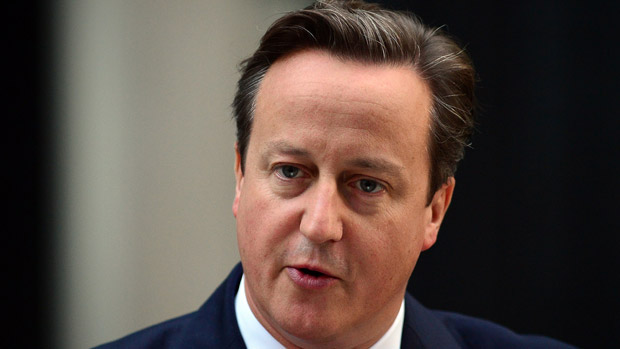Cameron 'failed spectacularly' at cutting migration
Latest figures show net migration has increased, despite Tory pledge to slash numbers before general election

A free daily email with the biggest news stories of the day – and the best features from TheWeek.com
You are now subscribed
Your newsletter sign-up was successful
New figures show the level of net migration to Britain increased to 298,000 in the year to September 2014 despite a government promise to cut the number to the tens of thousands before May's general election.
With just 70 days to go, Prime Minister David Cameron's "no ifs, no buts" promise to lower migration now "lies in tatters", says the BBC's assistant political editor Norman Smith.
Figures released by the Office for National Statistics show that net migration is now higher than when the Conservatives came to power in 2010. The biggest rise was in migrants coming to work, which rose from 54,000 to 271,000. Of those, 57 per cent were EU citizens and 25 per cent from outside the EU.
The Week
Escape your echo chamber. Get the facts behind the news, plus analysis from multiple perspectives.

Sign up for The Week's Free Newsletters
From our morning news briefing to a weekly Good News Newsletter, get the best of The Week delivered directly to your inbox.
From our morning news briefing to a weekly Good News Newsletter, get the best of The Week delivered directly to your inbox.
The figures also showed that a total of 37,000 Romanian and Bulgarian citizens moved to the UK last year, a "statistically significant" rise from 24,000 in the previous 12 months.
Downing Street responded to the news by saying that Cameron was "disappointed" with the figures. "He had said previously that we have not made as much progress as he would like but he had also said that he doesn't regret making this commitment," a spokesperson told the BBC.
Nick Clegg, who has always opposed the Tory targets, described the figures as "very embarrassing" for the Conservatives. "They made a huge fanfare about it and they were warned, warned by me and others privately, 'don't do this, it doesn't make any sense'," he told LBC radio."They've made a commitment and they have failed spectacularly to deliver it."
Ukip’s migration spokesman Steven Woolfe said the government should be "ashamed" of its "abject failure" to reduce net migration.
A free daily email with the biggest news stories of the day – and the best features from TheWeek.com
"No government can rationally plan to build the services required to cope with these numbers," he said.
Britain's relative success at stimulating economic growth and job creation appeared to be key factors in the increased levels of migration, according to the Oxford University-based Migration Observatory.
"If the UK’s economic performance compared with the rest of the EU had been poor, then we might well have seen net migration fall, but that has not happened," the organisation's director Madeleine Sumption told The Guardian.
Migrants' Rights Network director Don Flynn urged politicians on all sides not to use the figures as "a launchpad for their negative political campaigns", according to the Daily Mirror.
"What these numbers show is that Britain is more than ever an outward-facing, globalised country with a diverse and hardworking population from overseas," he said.